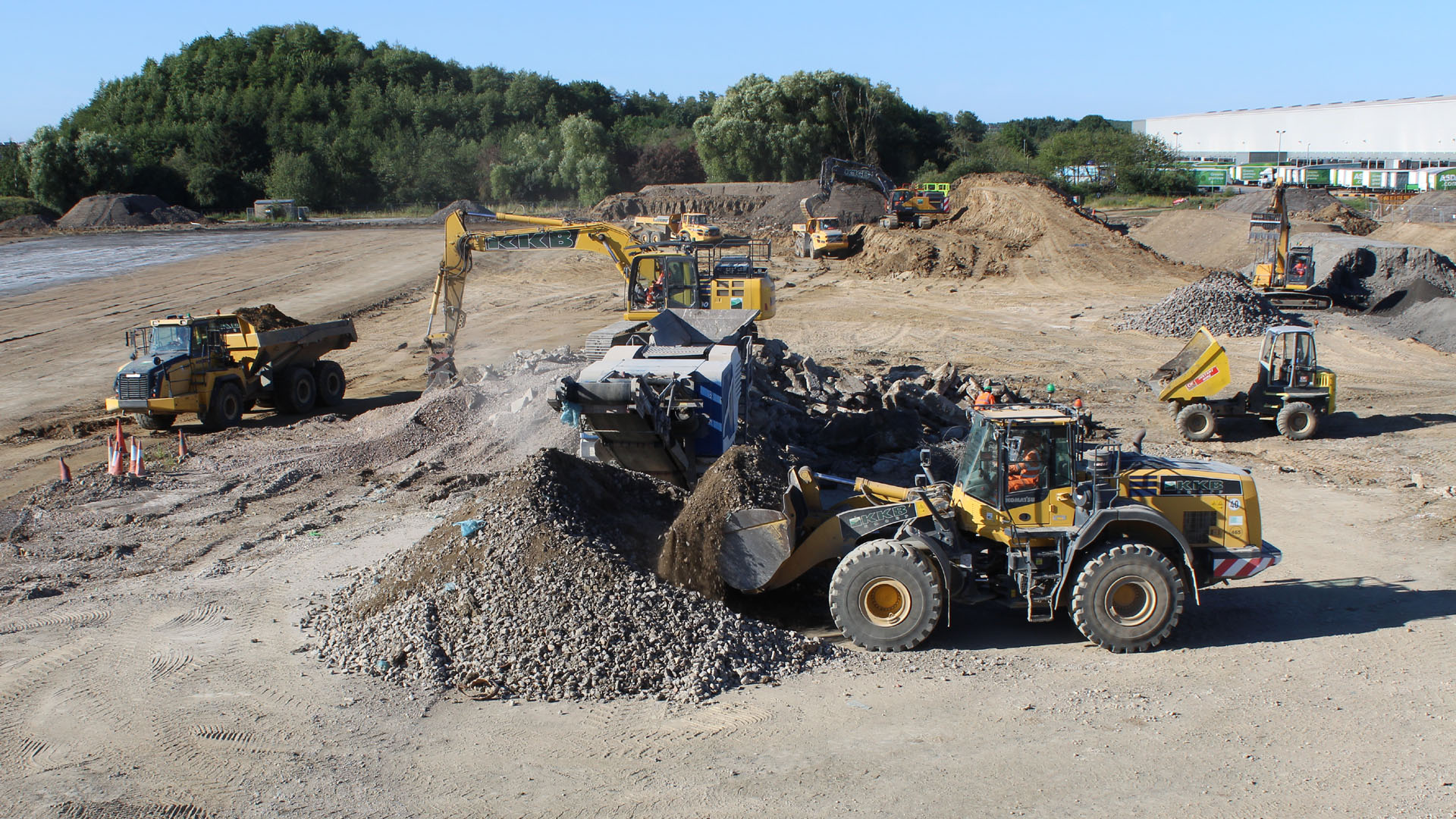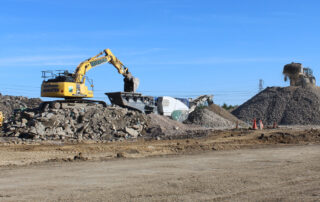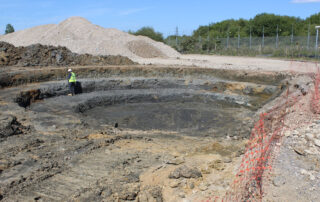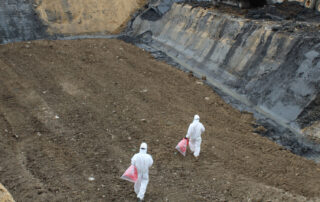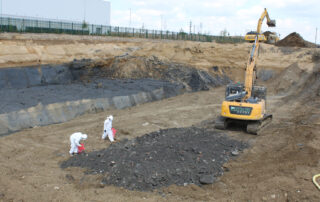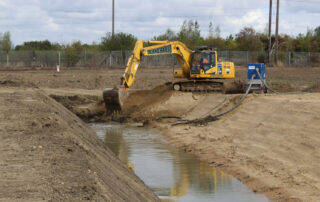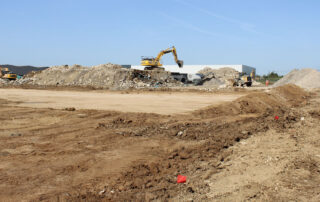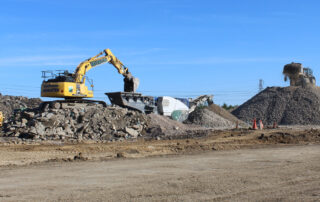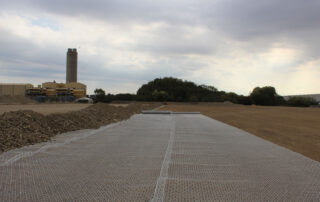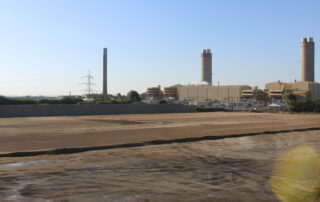KKB Remediation were appointed to undertake the enabling works to prepare land formerly occupied by the Didcot Power Station in Oxfordshire for the development of a new datacentre.
The environmental investigation of the land identified land contaminated by asbestos debris as well as material and ground water containing unacceptable levels of hydrocarbons.
Under our Mobile Treatment Licence we set-up a mobile treatment plant to decontaminate over 100,000 litres of associated groundwater. The water was pumped into the plant which removed pollutants using settlement tanks. Following discussion with the local authority consent was given to discharge the filtrate into the local foul water system.
Twenty thousand cubic metres of contaminated material was excavated and processed. The soils were visually inspected at the excavation face and hauled to the processing area. Within the processing area NNLW (notifiable non-licensed work) trained asbestos operatives picked the asbestos initially operatives from stockpile then from within the Asbestos Picking station.
The soils were then processed through the screening plant with asbestos pickers sited at the end of the screener belt for further asbestos picking.
All asbestos materials were doublebagged for off-site disposal. The processed soils were then validated by means of laboratory testing and backfilled below the site access road and car parks. The operation was carried out under the Control of Asbestos Regulations 2012 with an asbestos analyst carrying out air monitoring.
The project involved:
- Excavation and sorting of over a 100,000 cubic metres of soils which was tested to meet 1A/2A specification for re use in the earthworks profiles; the breakout and excavation of 28,000 cubic metres of hardstanding, crushed to meet the 6N specification for the construction of a 55,000m2 piling mat/working platform and the 6F2 specification for use in the construction of the roads.
- Excavation of 2 nr Borrow Pits to generate sand & gravels to use as clean cover in re-profiling the site's landscape areas.
Post project assessments revealed that remediating the contaminated land and water on-site saved the client over £5million and reduced the carbon footprint of the enabling works phase by 50% (335 tonnes CO2e).

